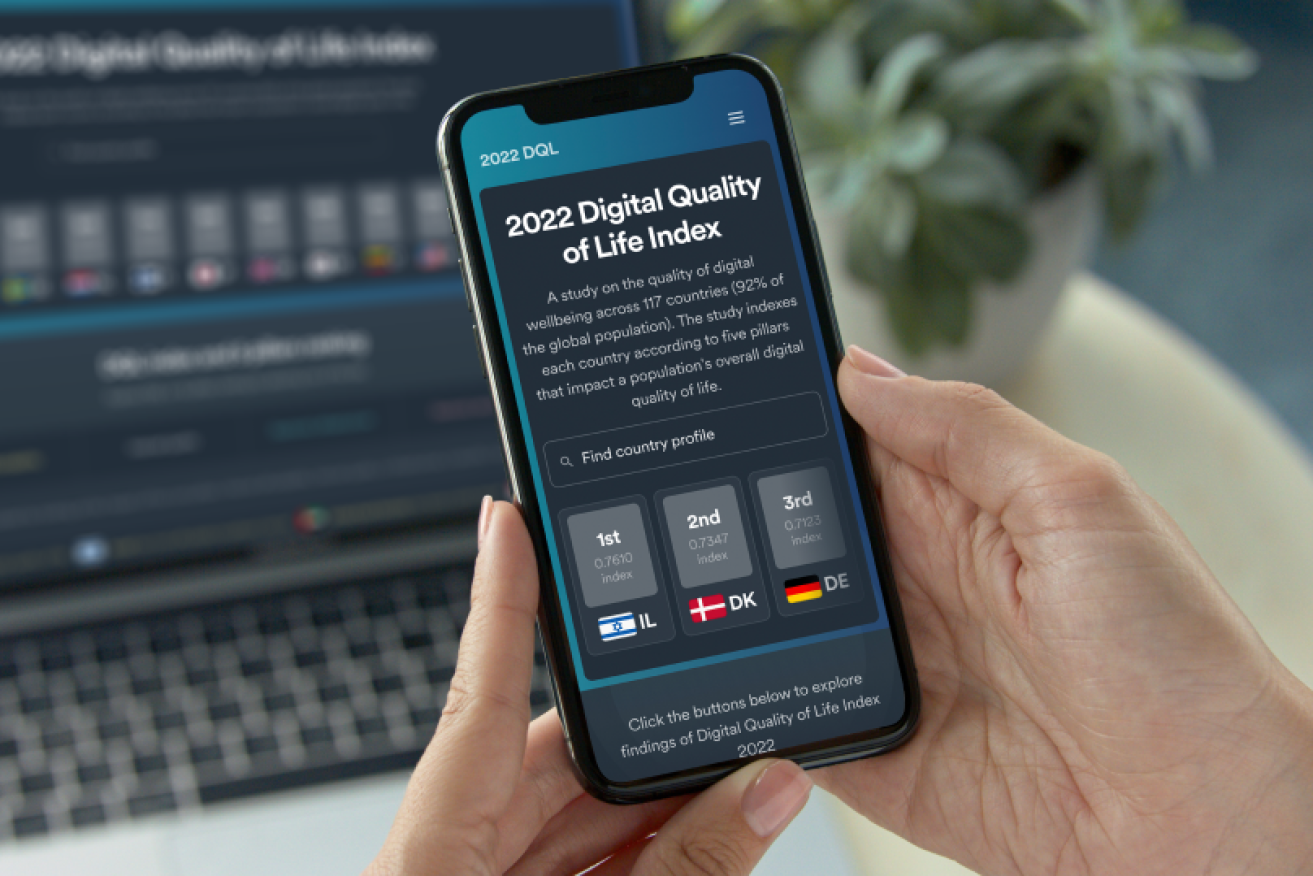Nation plummets in global digital index, as expert blames poor NBN decisions


Australia lags New Zealand on the latest global 'digital quality of life' index. Photo: Surfshark
Poor mobile and broadband stability have dragged down Australia’s ranking in the global ‘digital quality of life’ index, despite gains in internet affordability and electronic governance.
Australia was ranked 35 of 117 countries in the 2022 Digital Quality of Life index, released by internet privacy company Surfshark.
Israel was ranked first, Denmark was second, and Germany was third.
Researchers analysed 117 countries according to internet affordability, internet quality, e-infrastructure, e-security and e-government.

Source: Surfshark
From first to 35
In 2019, Australia was ranked first of 65 countries.
Technology experts said that Australia has fallen behind comparative nations on performance with the delivery of the National Broadband Network.
“So whilst we have the NBN, as we all feared when the Liberals decided to roll out obsolete technologies back in 2014, the effect has been that Australia has now fallen behind comparable countries in terms of the utility of broadband,” RMIT Associate Professor Mark Gregory said.
Professor Gregory said broadband speed has stymied how the service can support individuals and businesses.
He said that mobile network performance was also holding back the nation.
“One of the biggest problems in Australia today is that you can have four bars of 4G and still be getting less than one megabit per second throughput,” he said.
“Carriers aren’t providing the capacity that’s needed to service the number of customers on the network.”

Source: Surfshark
According to the report, Australia performed weakest on internet quality, dropping to 58, behind India at 57 and Chile, which was first.
Australia’s best score was for affordability, ranking 10 globally.
According to the report, Australia ranked 43 in electronic security, dropping seven rankings from 36 in 2021.
Professor Gregory said the previous Liberal government lowered standards about electronic security.
“Unfortunately, many of the data breaches are not made public,” he said.
“And the laws around data breaches and implementation of security are weak.
“In the last couple of days, we’ve all read how the former communications minister provided a lowering of standards for the telcos.
“The government needs to listen to people who have been arguing for a consolidated suite of changes and implement what’s needed to get the country back up in the index where it should be.”
Thinking globally
The report highlighted that, as has been the case for the past three years, seven of the 10 highest-scoring nations were in Europe.
This year’s study included seven more countries than last year’s index, most of which were on the African continent.
The five worst-performing nations were the Democratic Republic of the Congo, Yemen, Ethiopia, Mozambique and Cameroon.
The United States had the highest digital quality of life in the Americas.
South Africans had the best quality of digital life among African nations.
New Zealand led Oceania this year, exceeding Australia in all areas except affordability and infrastructure.
Data sources included databases from the United Nations, the US Department of State, Worldometer, and Oxford Insights.








